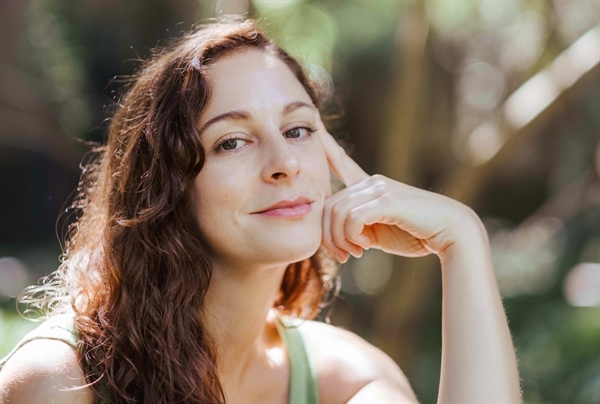
The film ‘Já Nada Sei’, featuring three Azorean actresses, has been well received abroad and will premiere today at the Ribeiragrandense Theater. Look at this excellent interview with journalist Mariana Rovoredo, from Correio dos Açores.
Correio dos Açores – What is the movie “Já Nada Sei” about? How did the opportunity to be part of this project come about?
Ana Aleixo Lopes (“Ana” in the movie “Já Nada Sei”) – “Já Nada Sei” is a feature film by director Luís Diogo, who has made many other films and won several awards. This one was no exception, and we won international awards at festivals. I got the role through a casting that was open to the public. Filming occurred in northern Portugal, in various cities: Santo Tirso, Oliveira de Azeméis, and São João da Madeira. It’s a drama and has a mumblecore style, a very American genre in which there are lots of dialogues. The film is a dialogue-based story on the relationship between the characters, in this case, between Ricardo and Ana, who are a couple. They seem to have the perfect relationship, but as the documentary progresses, you realize this isn’t true. It’s a relatively simple story, and I think the outlines are quite noticeable to everyone, but there’s also a slightly authorial side to it, in terms of rhythm. As there are a lot of dialogues, it ends up being a film that takes its time and has some poetic notes. The international premiere was in August 2022, and since then, the film has been in various festivals and cinemas, but we’ve only managed to bring it to the Azores.
How has the public reception been to this feature film?
It’s been exceptional abroad. We’ve won awards in many countries and in significant categories, such as screenplay, direction, acting, editing, and cinematography. We’ve also won awards for “Best Film” and “Best Foreign Film.” We’ve just been to Rio de Janeiro, and I’ve had a few messages saying they liked it. The reception abroad has been excellent. I also had the honor of attending the “Alameda” festival in San Francisco, where I met the audience, and their reception was terrific. They loved it, and at the end, they asked lots of questions and noticed lots of details. It’s been gratifying.
Here in Portugal, unfortunately, I think there’s a lack of awareness of Portuguese cinema. Being in the field, I don’t notice it much because, for example, on social media, I follow everyone connected to the cinema that is made here. I see the projects coming out, and I keep up to date, but it’s because I follow these people. Sometimes, I talk to friends of mine, people who aren’t in the field, and I realize that people aren’t aware of the Portuguese films or series that have come out but which are of immense quality. I know that outside the field, the word isn’t getting out to people. Our movie was no exception. Thanks to all the awards it has won, “Já Nada Sei” has made it to the cinemas, which is a huge victory. We were in cinemas from the north to the south, which is terrific. However, if we didn’t get the word out, we didn’t stay there for long. My perception is that perhaps it wasn’t as well received in Portugal as it was abroad.
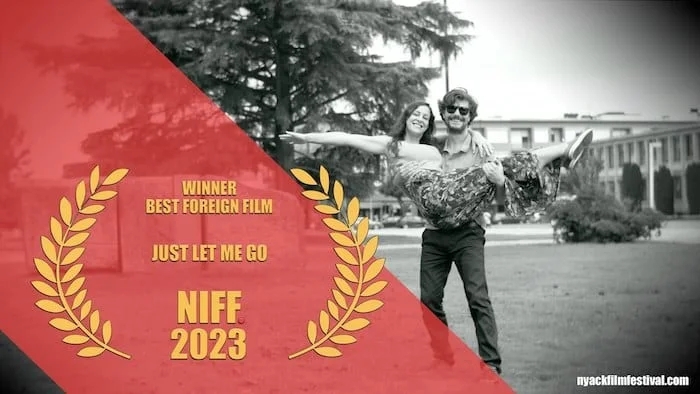
Can you tell us a bit about your character, “Ana”?
“Ana” is a physiotherapist. By chance, the character was initially written to be from the north, but after I got the part, Luís Diogo wanted to change my story a little. Ana was born in the Azores, and when her parents divorced, she stayed here with her mother, but when she went to university, she studied in Coimbra and got a job near her father, so she lived with him in the north of the country. Then Ana met Ricardo. She was his physiotherapist. He had a minor accident, and they started going out and getting to know each other better, and the relationship began. From her point of view, it’s the perfect relationship. They have a very full life. As well as having jobs they enjoy, they travel a lot and have a very intense cultural life, which Ana loves. She has two friends, played by two Azorean women. I think Ana, at the beginning of the story, is a very fulfilled and happy person, but then, as the story progresses, there’s a twist that turns her life upside down.
How was the experience of playing opposite two fellow countrywomen, Helena Ávila and Mónica Cabral?
It was wonderful. As well as being fellow countrywomen, they are two exceptional actresses with whom, by chance, I’d never acted, even though we’ve followed each other’s journeys since the beginning. The day we spent together, both in the hospital and in the café, filming was exceptional and fun. At the time, I was going through a difficult time personally, so being able to be with them and forget a little about everything that was going on was really nice. Then, of course, we meet up outside of filming. It’s different because it’s working in an environment with new people, but then you have those people who know you so well, and it’s almost like you’re with family. It was charming, and acting made us very comfortable with each other, of course.
For this performance, you won two awards, “Best Actress in a Feature Film” at the Darbhanga International Film Festival and “Best Actress in a Romance” at the Actress Universe International Film Awards. Were you expecting that? How did you take these awards?
I didn’t expect it at all. I’m the co-protagonist with Duarte Matos, but the story is very much told from his perspective. My character is there to illustrate the story he wants to tell, seen from the various perspectives of his friends. So, I think my character ends up not having as much development, and we don’t get to know her as deeply as we get to know his character. I thought that maybe I wouldn’t get to the point of achieving this kind of recognition, so when I did, I was thrilled, not least because they were my first individual awards. Throughout my career, I’ve made a lot of short films, and now, to be recognized for a feature film is delightful. Also, in “Best Actress in a Romance,” which is a genre I love to do and have done a lot of, and to have this recognition makes me very happy.
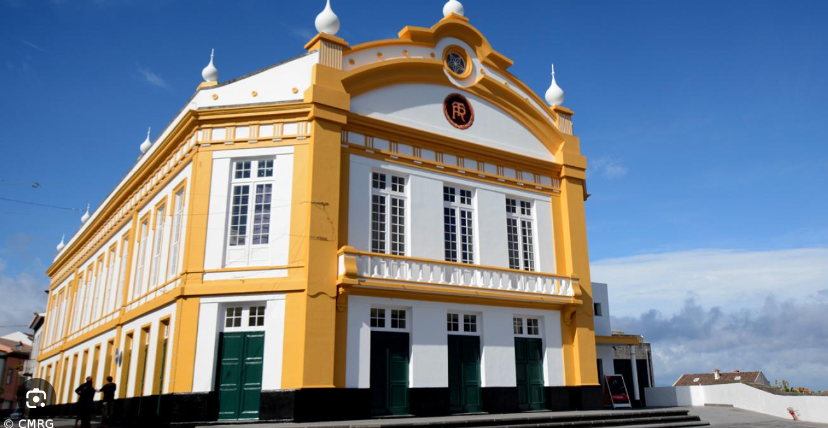
What are you looking forward to at the Ribeiragrandense Theater?
I’m thrilled that the movie has finally come to the Azores. I must confess that I’m a little worried about the time because it’s at 6:30pm, so all I can ask of people is that as soon as they get off work, they go straight to the Ribeiragrandense Theater. Many people were sorry when the film was in theaters and didn’t make it here. Many people would have liked to have seen it. Now that we have the opportunity, we owe it to the Ribeira Grande Cinema Club, to whom I am very grateful for the opportunity. I hope that the people who would have liked to have seen it at the cinema will be able to attend now and I hope they’ll ask me lots of questions. My character leaves a lot of loose ends, and I’d like to see the public’s curiosity in wanting to know more about my “Ana.”
What other projects are you involved in now?
At the moment, in Lisbon, at Cinema City Alvalade, there’s a film by director Margarida Gil, “Cavaleiro Vento,” which I also co-star in, and which was filmed in Pico. It will be there until at least November 1st. I’d love you to see it. It’s stunning and dreamlike and shows the island of Pico and the essence of the Azores. I have a small part in the series “Rabo de Peixe,” on Netflix and a part in the new “Morangos com Açúcar,” which premiered this Monday. I’m only in the 10th episode, but it’s also been a great experience.
In the United States, two feature films have just premiered that I was in, “Night Mistress” and “The Girl in the Backseat.” I have two other feature films, which were interrupted during the pandemic. I’m still waiting for the go-ahead to return and finish them. Here in Portugal, I’ve been filming João Pedro Frazão’s next movie, “Santanário,” which will be released in 2024. Otherwise, I’m waiting for casting answers. It’s a very unpredictable life. From one day to the next, we have a lot of work; sometimes, we have calmer phases. I hope that some of the responses I’m waiting for will be positive so that the next few months will be hectic.
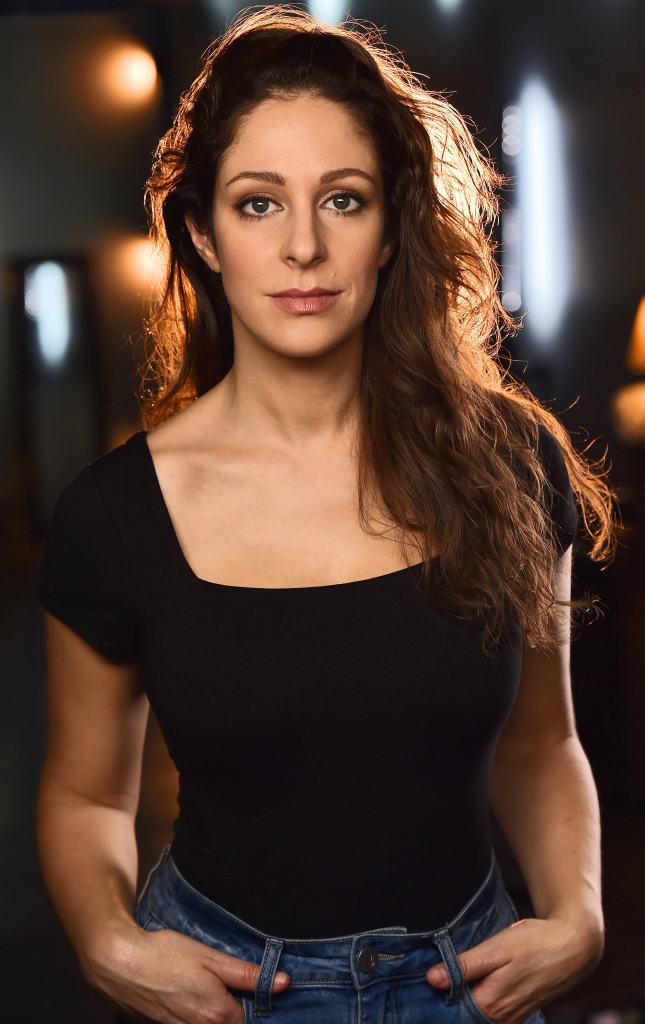
Is this the outlook for the future?
Yes. I’ve been in this struggle in the life of an artist for 20 years. In the beginning, the most complicated phases leave you worried and with many doubts, but I’ve learned to deal with it. I’ve created my own tools, and I think that when these phases arrive, I can handle them well. I know that this is how it is in the artistic world and in the audiovisual and performing arts in particular. The opportunities keep coming. In terms of premieres, I have an exciting life; in terms of filming, I would like it to be fuller, but given some of the opportunities out there, the future will be bright.
Do you have any ideas or personal projects you’d like to develop?
Yes, I have two passion projects involving the Azores. One is a feature film, and the other is a series. At the moment, they’re in the research and script development phase, so to speak. It’s nothing I want to do in a hurry because, at the moment, I’m more interested and focused on just working as an actress, and that means being part of other people’s projects. I like being the raw material that shapes the director’s vision. This is one of the things that really appeals to me as an actress. These two projects that I’m taking my time developing are projects that, perhaps in a calmer phase as an actress, or when I really feel the need to bring these characters I have in mind to live, I’ll focus more on this. Although I have these projects in the pipeline, they’re not my priority at the moment because the production demands a lot, and right now, I’m more focused on just working as an actress.
Are you interested in being behind the camera?
I’m not interested, I confess; it’s a need that has been there since the beginning of my career. In fact, when I started working as an actress at university and joined a theater company in Lisbon, I was asked to be the group’s production director in my second year. I started producing there while I was still at university. In the United States, I was also asked to be a production assistant on a movie, and with the hope of being given the role of helping out, I accepted. In other words, production for me has always been linked to the possibility of also being an actress in the project I produce. Then, here in Portugal, I had a job in production, and it was this experience that made me really understand the energy that production takes out of you. Since then, I’ve been careful to balance the two because I know that production demands many of us. When I feel that work isn’t coming my way as an actress, I already have this experience in production, and I take on a project that I want to do, and I do it not out of passion but out of necessity.
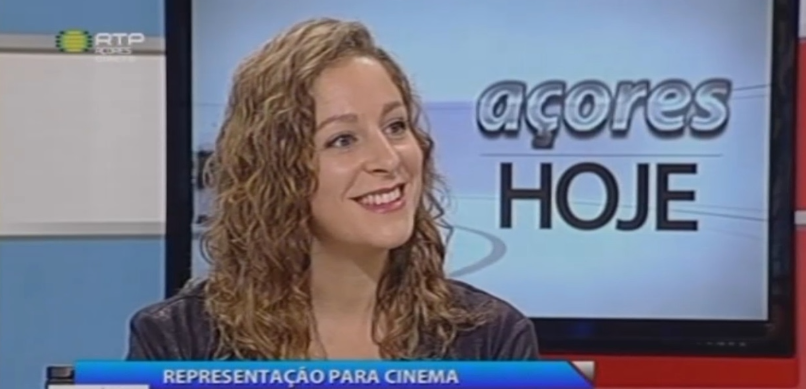
Are the Azores always present in your work?
The Azores are my homeland. I think my identity is very much linked to these islands, and any project that comes to me that I create myself will always have a connection to the Azores. If I produced something in the United States, it would always have a link to Portugal. I think that even if the story doesn’t have anything to do with it, there’s always one detail or another that will end up being linked to the Azores.
in Correio dos Açores-Natalino Viveiros, director
Translated to English as a community outreach program from the Portuguese Beyond Borders Institute (PBBI) and the Modern and Classical Languages and Cultures Department (MCLL) as part of Bruma Publication and ADMA (Azores-Diaspora Media Alliance) at California State University, Fresno.
